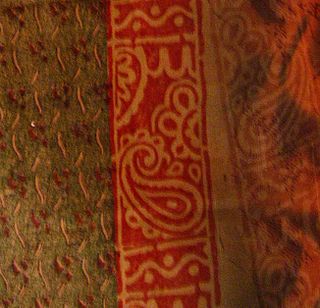Related Research Articles

Trustee is a legal term which, in its broadest sense, is a synonym for anyone in a position of trust and so can refer to any individual who holds property, authority, or a position of trust or responsibility for the benefit of another. A trustee can also be a person who is allowed to do certain tasks but not able to gain income. Although in the strictest sense of the term a trustee is the holder of property on behalf of a beneficiary, the more expansive sense encompasses persons who serve, for example, on the board of trustees of an institution that operates for a charity, for the benefit of the general public, or a person in the local government.

A fiduciary is a person who holds a legal or ethical relationship of trust with one or more other parties. Typically, a fiduciary prudently takes care of money or other assets for another person. One party, for example, a corporate trust company or the trust department of a bank, acts in a fiduciary capacity to another party, who, for example, has entrusted funds to the fiduciary for safekeeping or investment. Likewise, financial advisers, financial planners, and asset managers, including managers of pension plans, endowments, and other tax-exempt assets, are considered fiduciaries under applicable statutes and laws. In a fiduciary relationship, one person, in a position of vulnerability, justifiably vests confidence, good faith, reliance, and trust in another whose aid, advice, or protection is sought in some matter. In such a relation, good conscience requires the fiduciary to act at all times for the sole benefit and interest of the one who trusts.
A fiduciary is someone who has undertaken to act for and on behalf of another in a particular matter in circumstances which give rise to a relationship of trust and confidence.
Piercing the corporate veil or lifting the corporate veil is a legal decision to treat the rights or duties of a corporation as the rights or liabilities of its shareholders. Usually a corporation is treated as a separate legal person, which is solely responsible for the debts it incurs and the sole beneficiary of the credit it is owed. Common law countries usually uphold this principle of separate personhood, but in exceptional situations may "pierce" or "lift" the corporate veil.

Salomon v A Salomon & Co Ltd[1896] UKHL 1, [1897] AC 22 is a landmark UK company law case. The effect of the House of Lords' unanimous ruling was to uphold firmly the doctrine of corporate personality, as set out in the Companies Act 1862, so that creditors of an insolvent company could not sue the company's shareholders for payment of outstanding debts.

Adams v Cape Industries plc [1990] Ch 433 is a UK company law case on separate legal personality and limited liability of shareholders. The case also addressed long-standing issues under the English conflict of laws as to when a company would be resident in a foreign jurisdiction such that the English courts would recognise the foreign court's jurisdiction over the company. It has in effect been superseded by Lungowe v Vedanta Resources plc, which held that a parent company could be liable for the actions of a subsidiary on ordinary principles of tort law.

Canadian Aero Service Ltd v O'Malley, [1974] SCR 592, is a leading civil case decided by the Supreme Court of Canada on corporate director and officer liability.

English trust law concerns the protection of assets, usually when they are held by one party for another's benefit. Trusts were a creation of the English law of property and obligations, and share a subsequent history with countries across the Commonwealth and the United States. Trusts developed when claimants in property disputes were dissatisfied with the common law courts and petitioned the King for a just and equitable result. On the King's behalf, the Lord Chancellor developed a parallel justice system in the Court of Chancery, commonly referred as equity. Historically, trusts have mostly been used where people have left money in a will, or created family settlements, charities, or some types of business venture. After the Judicature Act 1873, England's courts of equity and common law were merged, and equitable principles took precedence. Today, trusts play an important role in financial investment, especially in unit trusts and in pension trusts. Although people are generally free to set the terms of trusts in any way they like, there is a growing body of legislation to protect beneficiaries or regulate the trust relationship, including the Trustee Act 1925, Trustee Investments Act 1961, Recognition of Trusts Act 1987, Financial Services and Markets Act 2000, Trustee Act 2000, Pensions Act 1995, Pensions Act 2004 and Charities Act 2011.

Keech v Sandford[1726] EWHC J76 is a foundational case, deriving from English trusts law, on the fiduciary duty of loyalty. It concerns the law of trusts and has affected much of the thinking on directors' duties in company law. It holds that a trustee owes a strict duty of loyalty so that there can never be a possibility of any conflict of interest.

Boardman v Phipps [1966] UKHL 2 is a landmark English trusts law case concerning the duty of loyalty and the duty to avoid conflicts of interest.
The Liability of trustees inter se in English law governs in what circumstances and to what extent a trustee in English trust law is liable for the acts and defaults of their co-trustees under English Law. In general trustees are under a duty to act jointly and have authority to act individually only if the trust instrument so provides. In principle therefore each trustee has an equal say in the management of the trust property and therefore in the event of a breach the trustees are jointly and severally liable for their actions.
Dishonest assistance, or knowing assistance, is a type of third party liability under English trust law. It is usually seen as one of two liabilities established in Barnes v Addy, the other one being knowing receipt. To be liable for dishonest assistance, there must be a breach of trust or fiduciary duty by someone other than the defendant, the defendant must have helped that person in the breach, and the defendant must have a dishonest state of mind. The liability itself is well established, but the mental element of dishonesty is subject to considerable controversy which sprang from the House of Lords case Twinsectra Ltd v Yardley.

Knowing receipt is an English trusts law doctrine for imposing liability on a person who has received property that belongs to a trust, or which was held by a fiduciary, having known that the property was given to them in breach of trust. To be liable for knowing receipt, the claimant must show, first, a disposal of his trust assets in breach of fiduciary duty; second, the beneficial receipt by the defendant of assets which are traceable as representing the assets of the claimant; and third, knowledge on the part of the defendant that the assets he received are traceable to a breach of fiduciary duty.

CMS Dolphin Ltd v Simonet [2001] EWHC Ch 415 is a UK company law case concerning directors' duties.
The corporate veil in the United Kingdom is a metaphorical reference used in UK company law for the concept that the rights and duties of a corporation are, as a general principle, the responsibility of that company alone. Just as a natural person cannot be held legally accountable for the conduct or obligations of another person, unless they have expressly or implicitly assumed responsibility, guaranteed or indemnified the other person, as a general principle shareholders, directors and employees cannot be bound by the rights and duties of a corporation. This concept has traditionally been likened to a "veil" of separation between the legal entity of a corporation and the real people who invest their money and labor into a company's operations.

South African company law is that body of rules which regulates corporations formed under the Companies Act. A company is a business organisation which earns income by the production or sale of goods or services. This entry also covers rules by which partnerships and trusts are governed in South Africa, together with cooperatives and sole proprietorships.

Barnes v Addy (1874) LR 9 Ch App 244 was a decision of the Court of Appeal in Chancery. It established that, in English trusts law, third parties could be liable for a breach of trust in two circumstances, referred to as the two 'limbs' of Barnes v Addy: knowing receipt and knowing assistance.
Belmont Finance Corp Ltd v Williams Furniture Ltd [1980] 1 All ER 393 is an English trusts law case, concerning breach of trust and dishonest assistance.

Prest v Petrodel Resources Ltd[2013] UKSC 34, [2013] 2 AC 415 is a leading UK company law decision of the UK Supreme Court concerning the nature of the doctrine of piercing the corporate veil, resulting trusts and equitable proprietary remedies in the context of English family law.

VTB Capital plc v Nutritek International Corp[2013] UKSC 5, [2013] 2 AC 337 is an English company law case, concerning piercing the corporate veil for fraud.
Byers v Saudi National Bank[2022] EWCA Civ 43 is a decision of the English Court of Appeal in the long running litigation between the liquidators of SAAD Investments Company Limited and various parties relating to the alleged defrauding of the insolvent company by one of its principals.